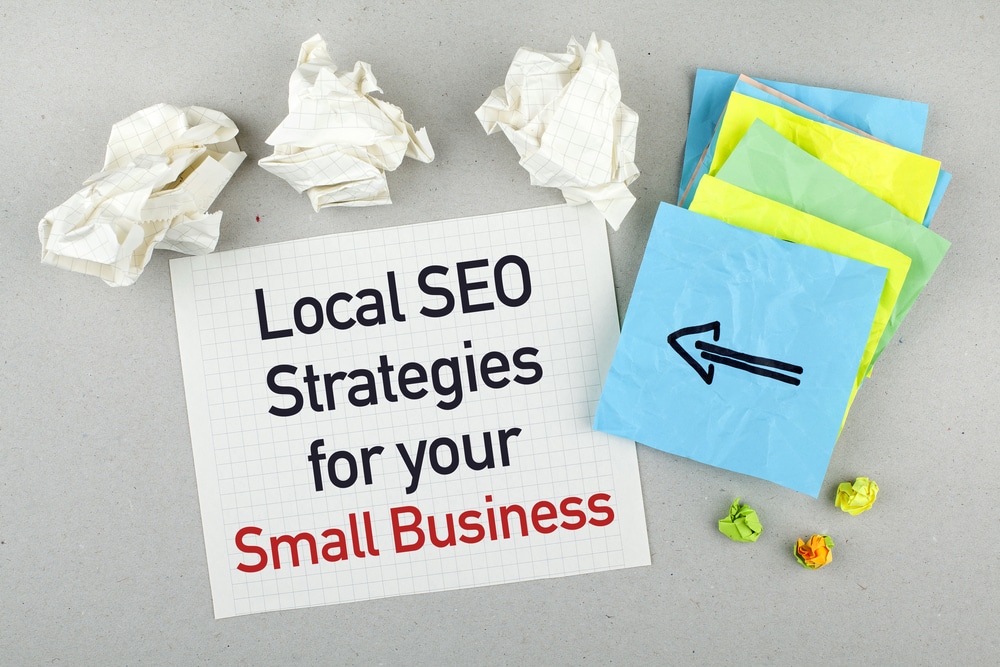Are you running a local brick-and-mortar business in 2021? Do you want to attract more foot traffic to your business and skyrocket your revenue? Wouldn’t it be great if there was a way to boost brand awareness among today’s internet-savvy consumers?
If you own a local business, chances are you’ve been swamped by the unprecedented challenges of the COVID-19 pandemic. Driving in-store conversions and generating revenue has become painstakingly difficult.
The good news is that there’s still a powerful and cost-effective way of reaching out to target consumers. You just need to create a strong online presence for your business to build awareness and visibility. It’s crucial considering that consumers are becoming increasingly dependent on the internet while making their purchase decisions.
So, how do you strengthen your brand’s online presence and drive foot traffic to your store? The key is to focus on local search engine optimization (SEO) with a robust keyword research strategy.
Local Keyword Research: A Closer Look
If you’re familiar with
But local keyword research is about far more than just guessing common search terms that consumers use to look for your products/services on Google. Nor is it as simple as using a keyword tool to identify the most popular search queries in your niche.
Keyword research for local
Also, you need to cater to the needs of consumers who use voice search to learn more about your business and products/services. That makes it imperative to stay abreast of the latest trends and developments in local keyword research.
In this article, we’ll discuss how local keyword research is changing in 2021. Also, we’ll explore ways to create a fresh keyword research strategy for your local business. Let’s get started.
Search Volume Doesn’t Matter As Much
When it comes to local
Let’s say you run a home bakery based out of Upper Manhattan. Chances are you offer a wide array of products, including wedding cakes, baby shower cakes, and birthday cakes.
Now, you’d want your website to claim a top position in search engine results for “baby shower cakes in Upper Manhattan.” Even if the keyword isn’t associated with particularly high search volume, targeting it will help you build brand awareness.
The best part is that you can attract qualified visitors who know precisely what they want and, therefore, are more likely to convert into customers. Also, targeting keywords with low search volume means you’re going to face less competition.
That’s why the traditional practice of using search volume as a metric for keyword search is no longer applicable to local
Intent Is Important
So, if the search volume isn’t the most suitable parameter for local keyword research, how do you select the right keywords? The solution is to focus on the intent associated with a keyword.
That’s because when it comes to local
Start by analyzing whether a particular keyword is associated with local intent. In other words, you need to check whether people searching for the keyword are looking for local businesses. If they aren’t willing to shop local, driving them to your website won’t yield any results.
Similarly, it’s important to determine and satisfy the search intent associated with a particular keyword. Consumers use search engines with various types of intentions. While some are looking to buy a specific product, others just need general information about a brand. Then there are people who are looking for answers to specific queries.
Understanding the search intent associated with a local keyword is crucial for delivering a top-notch user experience. It’s particularly important because Google has already started considering user experience as an important ranking signal.
Optimize for Zero-Click Results
How many times have you typed something into Google and not felt the urge to click on any of the results? Chances are it’s happened more often than you can count. Increasingly, that’s because the search engine uses various elements, including map packs, rich snippets, and Google My Business listings to enhance the search experience.
It means users can find relevant information in the search engine results pages (SERPs) without actually clicking on any of the listings.
So, how is that related to local keyword research?
It means optimizing your website for local keywords isn’t enough. You also need to target these keywords using your Google My Business listing. Use relevant keywords in the business description, and make sure you provide accurate company details.
Moreover, you need to target long-tail keywords that’ll help your website rank in rich snippets. A clever way of doing that is to create an FAQs page that answers the most common questions your customers are likely to ask. Monitor Google “People also ask” for relevant keywords to identify the popular questions.
Prioritize Voice Search Queries
The number of people using smart speakers and virtual assistants is on the rise. Also, people are more likely to search for local businesses on the go, using virtual assistants. That makes it imperative to integrate voice search queries into your local keyword research strategy.
Find the Right Way to Target Local Keywords
Optimizing your website for local keywords is no longer about stuffing random keywords into on-page content. Instead, you must find creative ways to organically integrate keywords into your web pages.
Apart from creating an FAQs page, you could consider building individual product/service pages to group related keywords. Similarly, you could create individual web pages for each store location.
The landscape of


